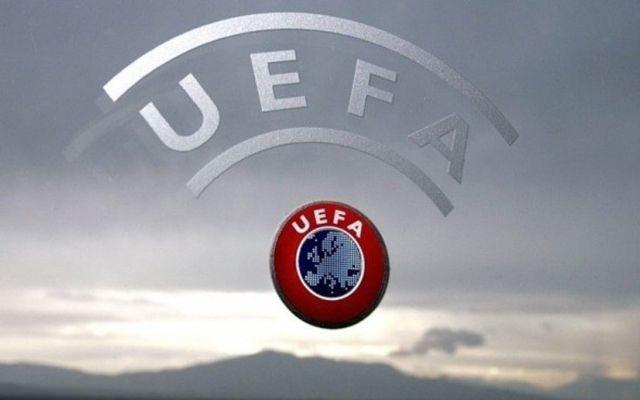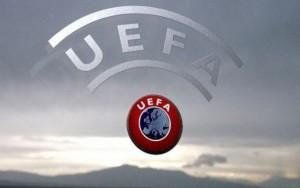A new era of European soccer brings about a new era for multiple teams

Thanks to the expanded format, many more 'lesser' teams have a chance to make a statement on the international stage. The criteria for qualifications was also easier to meet than in the previous editions of the tournament. Photo attributions to Nazionale Calcio.

by Martin Vrankovic, staff reporter
Several fresh faces will be present next year in France, as the 2016 UEFA European Championship is set to kick off next June. With the tournament’s arrival comes a chance for several of Europe’s “lesser” teams to make a statement on the international stage, thanks to its expanded format.
The criteria for qualification was a little easier to obtain than in previous editions of the tournament thanks to the increased number of participating teams (24, eight more teams than the sixteen that played in 2012). This meant that teams finishing second in their qualifying groups automatically earn a berth into the tournament proper, with third placed teams entering a two-legged playoff to win the chance to play in the final tournament, which is set to kick off on June 10th.
One of the teams set to make their first appearance in the Euros is Iceland. The island nation, with a population of 329,000 people, punched above their weight and won 6 games in Group A, including home and away victories against the Netherlands and a win against the Czech Republic, who were the group winners. Next June’s tournament marks the first appearance of the Icelanders in an international tournament, just a couple of years after they failed to win a play-off to get into the 2014 FIFA World Cup in Brazil.
Another debutant team making their bow in the international scene are the Albanians. Albania’s qualifying campaign started off well, with a win against a Cristiano Ronaldo-less Portugal and then a draw against group rivals Denmark. The Albanians were then involved in controversy when their match against Serbia was abandoned and the Albanians were awarded the win. Political tensions spilled onto the pitch as a drone carrying a flag with pro-Albanian logos and slogans led to a brawl among players, and several fans, leading to the game’s cancellation.
While Serbia was initially awarded the win, several appeals launched by both the Serbian and Albanian FA’s in response to the decision led to Albania getting the three points, which proved vital in their fight against Denmark for second place in Group I. The two teams had an almost identical record, with Denmark’s draw against Portugal(compared to Albania winning in Portugal) proving to make all the difference, as the Balkan team finished second to qualify for their first ever major tournament.
Along with Iceland and Albania, several teams will be playing in their first European Championships, having waited generations to get a chance at an international tournament. Northern Ireland will be one team, with their first appearance in the Euros also being the team’s first time playing in a major tournament since the 1986 FIFA World Cup. They finished at the top of Group F, only losing one match, which was against runners-up Romania.
The Welsh have waited even longer, with next year’s tournament being the first one they’ve played in since the 1958 FIFA World Cup, which was played before the first European Championships had even been played. Led by Real Madrid winger Gareth Bale, who scored 7 out of the 11 goals scored by Wales, they qualified in second place in Group B with a game to spare. Slovakia will also be partaking in their first Euros, earning second place in Group C behind Spain, who they impressively defeated early on in the qualification process.
In contrast with the fresh faces, almost all of Europe’s elite were able to make it to France with minimal trouble. England was able to qualify with a perfect record of 10 wins out of 10, Portugal bounced back from a shock loss to Albania to win their group by seven points, Germany qualified for their 12th consecutive Euros by topping Group D, and the Italians were able to triumph in Group F without a loss. Reigning champions Spain also bounced back from a horrid World Cup performance by qualifying comfortably from Group C.
Rather surprisingly, the Netherlands failed to qualify. The Dutch, having placed third in the 2014 FIFA World Cup and expected to seal qualification with little difficulty, showed none of the form they showed in Brazil, losing half of their matches in Group A. Their fate was pretty much sealed in matchday 8, where Turkey hammered them 3-0, leaving the Dutch, who won the tournament back in 1988, having to rely on other results, as well as them winning their final two games, to help them get the playoff spot over Turkey. However, a 3-2 loss to the Czech Republic on the final day capped off a disappointing campaign for the Oranje.
Euro 2004 winners Greece also had a dreadful time, winning just one match in Group F. Despite coming into the qualification process with a successful World Cup campaign behind them, they failed to show any of that form, and ended up losing six games, two of them to the Faroe Islands, who recorded only their 12th ever victory when the second match between the two ended in a 2-1 win for the Faroese.
While twenty teams have already booked their place in France next year, there are still eight teams vying for a spot in the tournament via a two legged playoff. Norway and Hungary face off on November 12th, with the Hungarians looking to play on the international stage for the first time since 1986. Sweden have to see off fellow Scandinavians Denmark in order to qualify for a fifth straight Euros, while Bosnia-Herzegovina play against the Republic of Ireland in the hopes of a first appearance in a European Championship as an independent nation. Slovenia and Ukraine round off the teams still in with a shot at reaching the final tournament in France.
